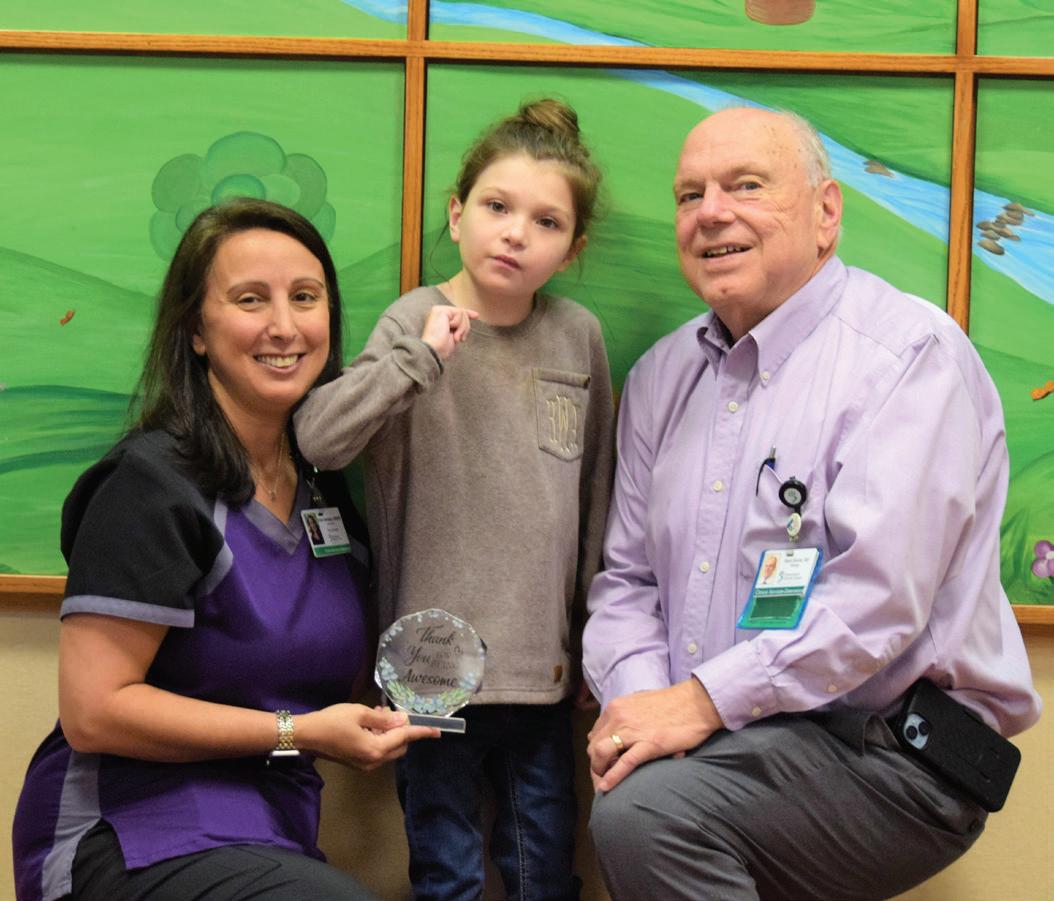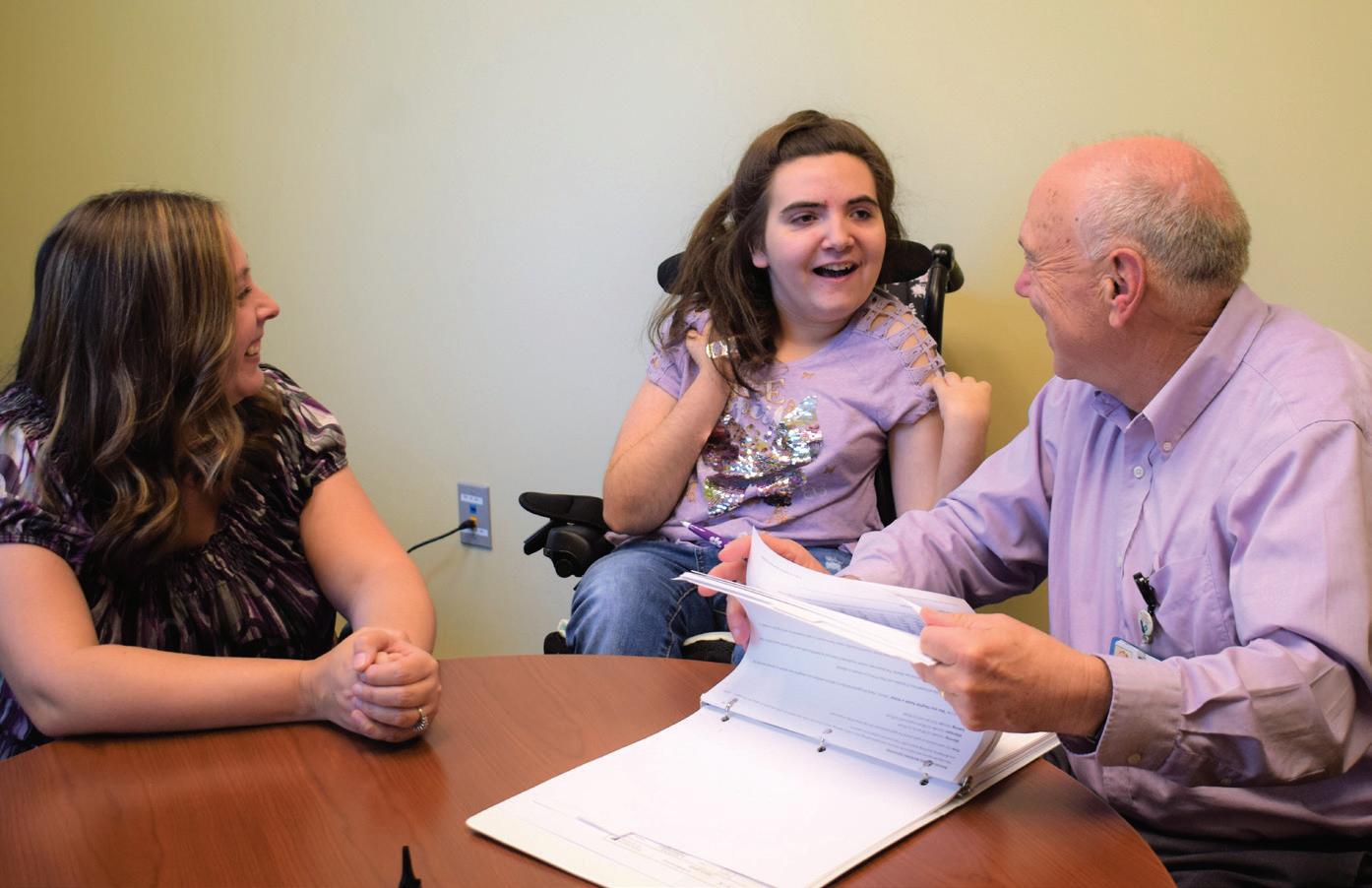
3 minute read
A NEW HOPE
GGC part of trials for first FDA-approved drug for Rett syndrome
Patients and genetics professionals around the globe are celebrating a historic milestone - the first and only FDA-approved medication to treat Rett syndrome, a rare genetic neurodevelopmental disorder.
Advertisement
GGC, an International Rett Syndrome Foundation Center of Excellence, has a long-standing interest and vast expertise in Rett syndrome. As such, GGC was selected to be a clinical trial site for Acadia Pharmaceutical's DAYBUE (trofinetide) which was approved in March for use in adult and pediatric patients with Rett syndrome two years and older.
Rett syndrome affects 6,000-9,000 patients in the US and is caused by a mutation in the MECP2 gene on the X chromosome. Because of its location on the X chromosome, the disorder mainly impacts females, with males less frequently affected.
“Rett syndrome causes significant and lifelong challenges including developmental regression with the loss of communications skills and purposeful hand use, as well as behavioral and physical symptoms that impact breathing, sleep, growth, and mobility,” said Steve Skinner, MD, Director of GGC and study investigator.
"Prior to DAYBUE's approval, the only available medical interventions were focused on treating individual symptoms of Rett syndrome - seizure meds to treat seizures, GI meds to treat
-Fran Annese, GGC Clinical Trial Coordinator
constipation, etc.," said Skinner. "This drug is designed to repair synapses, or connections within the brain, that we hope will lead to a more global improvement of symptoms."
GGC had been involved in earlier safety and efficacy studies of trofinetide, but the Phase 3 clinical trials began just as the COVID pandemic was taking hold.
"It was a huge challenge to conduct a clinical trial in the midst of a global pandemic," shared Fran Annese, LMSW, GGC's Clinical Trial Coordinator. "We had to follow the strict protocols necessary for a successful clinical trial while also taking measures to keep our patients and their families safe."
Despite these challenges, GGC enrolled seven patients with Rett syndrome from across North and South Carolina for the trial. The first part of the study involved a randomized double-blind placebo-controlled study with some patients on the drug and others on placebo. Which patients received the actual drug was unknown to both the investigators and the families. This protocol was followed by an open label study where all enrolled patients received the study drug. Patients visited GGC regularly to receive the drug or placebo and undergo medical exams and other assessments to identify any changes in their condition. Parents and caregivers also completed surveys throughout the study to assess their family member's condition.
The results demonstrated statistically significant improvement in several areas for patients who took trofinetide compared to those taking the placebo.
"This is not a cure," said Skinner, "but many patients are seeing improvements in areas including anxiety, hand movements, and nonverbal communication. And we don't yet know the full benefit of longterm administration of DAYBUE or of starting the drug at an early age when the diagnosis is first made," he added. "That data will take time to assess, but we are very hopeful."
This medication was initially developed from work by the US Department of Defense as they were studying therapies for soldiers with traumatic brain injuries. Trofinetide was useful in repairing some of the damaged brain connections and reducing inflammation. Skinner said that work led to the possibility that it may also be beneficial for patients with congenital neurological disorders like Rett syndrome. In studies of a mouse model of Rett syndrome, the drug was able to reverse many of the symptoms as well as extend the life of affected mice.
DAYBUE became available to patients in the US on April 17.
Part of the clinical trial process includes the daunting possibility of an audit by the FDA during their evaluation of the drug. GGC was the first site, and one of three in the clinical trial, to be selected for an audit. "FDA personnel visited GGC last year and combed through every detail of the trial," said Annese. "And thanks to our wonderful clinical trials team, we passed the audit with flying colors!"
“After decades of clinical research and drug development, we now have something to offer these patients and families that has the potential to improve many of the symptoms of Rett syndrome," said Skinner.

GGC has been active in the study and care of patients with Rett syndrome for over two decades, including the National Institutes of Health-sponsored natural history study, the current Rett syndrome registry, and several prior clinical trial projects. The Center also holds a Rett syndrome clinic at Shriners Hospital for Children in Greenville.
“The approval of DAYBUE represents a long-awaited development for the treatment of Rett syndrome,” said Annese. “We are excited and hopeful for the benefits this will have for our families and are grateful for those who joined the clinical trial and helped bring this drug to market.”






